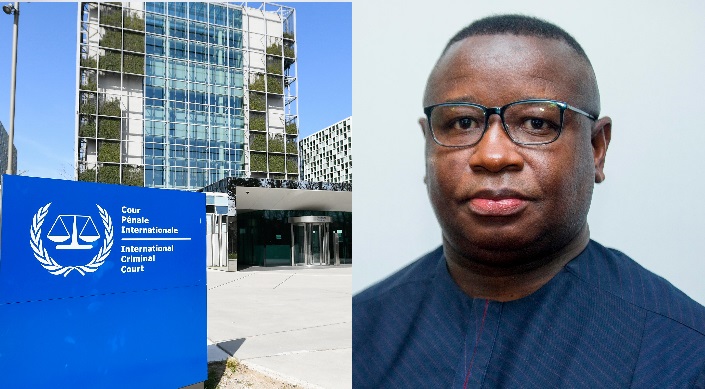The recent revelation of a memo from the prosecutor of the International Criminal Court (ICC), Karim Khan QC, expressing a desire for a meeting with President Bio during the upcoming United Nations General Assembly (UNGA) meeting in New York has generated a whirlwind of controversy.
While speculation is a natural tendency in such situations, it is essential to address these claims with rationality and context, rather than jumping to conclusions based on unfounded assumptions.
The prevailing assertion among some members of the opposition, that the International Criminal Court prosecutor’s meeting with President Bio is indicative of an impending investigation against him and his government, lacks a substantive foundation. It is important to emphasize that such assumptions run counter to the ICC’s established practices and procedures. The ICC does not require a personal meeting with a head of state to declare a country as a situation in which it will initiate investigations. The Rome Statute, the founding document of the ICC, provides a clear framework for the commencement of investigations, and this process does not necessitate a face-to-face interaction between the prosecutor and a national leader.
It is crucial to maintain a rational perspective on the situation. The ICC, as an impartial international judicial body, is duty-bound to adhere to established protocols and principles in its investigations. To assert that a mere meeting indicates an imminent investigation undermines the professionalism and integrity of the ICC, which is mandated to operate independently and transparently.
Past practices of the ICC further debunk the notion of a correlation between a meeting and impending investigations. The ICC follows a careful and well-defined procedure when determining whether to launch investigations. The Office of the Prosecutor conducts preliminary examinations to assess the credibility and gravity of potential crimes, which is a meticulous process that involves rigorous analysis of available evidence. This process is not influenced by personal meetings but rather by the legal criteria outlined in the Rome Statute.
Drawing parallels with the ICC’s past engagements is essential in this context. The ICC has conducted investigations and prosecutions in situations around the world without the requirement of in-person meetings with leaders of the respective nations involved. The court’s commitment to adhering to the Rome Statute’s provisions and its consistent application of due process underscores its commitment to impartiality and the rule of law.
It is prudent to let the ICC perform its duties within the bounds of established international legal norms. Jumping to conclusions and fueling baseless claims can be counterproductive and detrimental to the efforts of the international community to ensure accountability for grave crimes. President Bio must be allowed to engage in diplomatic dialogues without unnecessary speculations that may lead to unnecessary tensions.




 7 Comments
7 Comments










Am mermerise with this submission
There could not be a better way to analyse the prevailing assumption on the president’s invitation
I salute the author and give him/her a gold.
Well delivered
S L P P taaaaaaeeeeee Go 🇸🇱🇸🇱
ALLAH 🙏 is with you Maada
Thank you for educating the educationist/politician, who want to rule a country but always wish or wanted bad things to happen for a current president and government.
Always twisting news on the negative way, people have to be careful okay ooh. Too much of anything is dangerous.
A P C people always wish bad for salon.But they will see it again 2028.
APC not good for themselves nor the country, they are bunches of crooks💯
Maada Bio is not a child and knows what it means to be invited by the ICC.
The ICC is a credible institution with a high level of integrity. By the way, how did this information about the letter leak from State House? This shows that somebody from State House must have leaked out this secret document.
I agree, there are a lot of speculations surranding the invitation letter.
The people of Sierra Leone have been trained to accept lies and to propergate those lies in confidence. Even our Moral guarantors are not trusted any more. Many people in Sierra Leone are very economical with the Truth because of money or material benefits.
Nobody can predict the issues to be discussed but because the letter comes from the ICC Prosecutor, Maada Bio needs to be very careful. Maada Bio needs a thorough reflection of many of his activities with the Sierra Leonean people in the last five years. There were a lot of people who led him astray but those were the people he thought were his friends. So Maada Bio get ready to EXPLAIN. ” Uneasy lies the head that wears the crown”. Lontha! Lontha!
Slpp go learn soon